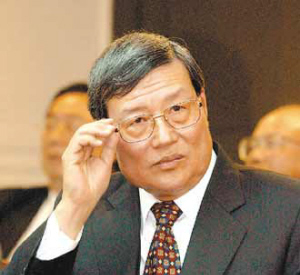
China-Taiwan: An Intelligence Detente?
Publication: China Brief Volume: 9 Issue: 4
By:

The ruling party in Taiwan, the Kuomintang (KMT), is engulfed in another intelligence-related gaffe. A string of domino-like events that began with a report in the United Daily News, one of Taiwan’s major newspapers with close ties to the ruling party, which reported that a senior official in the Presidential Office’s Department of Special Affairs has been held for passing secret information to China, is reopening old wounds in Taiwan’s once reputable intelligence services.
Wang Ren-bing, the official in question, allegedly passed classified information from the Presidential Office between March and April 2008 to Chen Pin-jen who is suspected of handing it over to Chinese intelligence officers. Chen Pin-jen was the former legislative aide to KMT Legislator Liao Kuo-tung and People First Party Legislator Lin Chun-teh (The Straits Times, January 16).
The spy incident surfaced after the execution last December of a medical researcher, Wo Weihan, who was accused by Beijing of spying for Taiwan. Wo was charged with supposedly disclosing “secret” information on the health of a senior Chinese official and copied military data from unclassified magazines (Taipei Times, December 2, 2008).
Wo’s execution closely followed, perhaps coincidentally, a controversial charge made by National Security Bureau (NSB) Director-General Tsai Chao-ming during the Legislature’s Foreign and National Defense Committee meeting in October 2008 (Taipei Times, October 7, 2008). Tsai said that information from the bureau’s sources in China suggest that the deadly Severe Acute Respiratory Syndrome (SARS) outbreak in 2002 has "become a biological warfare formula" but that, "conclusive evidence had not surfaced" (Reuters, October 7, 2008).
According to a recent leak obtained by a Taiwanese newspaper, Liberty Times, an intelligence source revealed that Taiwan’s National Security Council (NSC), which serves as the Taiwanese president’s principal arm for coordinating national security and foreign matters among various government agencies, may have ordered the NSB—the organ in charge of the nation’s clandestine network—to cease the recruitment of agents to work inside China (Liberty Times, February 13). These networks, also known as its human intelligence resources (HUMINT), have been a Taiwanese asset in the "invisible war" between the two sides. According to a former Taiwanese spy, Jian Jianguo, who now resides in Hong Kong, there were about 30,000 Taiwanese spies dispatched to the mainland at the height of the Cold War (Los Angeles Times, May 31, 2007).
The NSC, which is presided over by President Ma Ying-jeou, is directed by Secretary-General Su Chi, a former KMT legislator and well known China specialist who served as the chairman of the Mainland Affairs Council (1999-2000). The current director-general of the NSB, Tsai Chao-ming, was first elevated to the position by former President Chen Shui-bian back in 2001. Tsai stepped down in 2004 to take responsibility for the unsuccessful March 19 assassination attempt on former President Chen and Vice-President Annette Lu during the controversial 2004 Presidential Election but was reappointed by Ma in 2008. The same report, citing a source familiar with the organization’s budget, claimed that the NSC is “plundering” the NSB’s resources by using funds that were allocated for the two organizations affiliated with the NSB, the Cross-Strait Prospect Interflow Organization and the Asia-Pacific Peace Foundation (formerly known as the Foundation on International and Cross-Strait Studies), for NSC uses.
The Presidential Office quickly denied the recruitment report, demonstrating its concern for the negative implications that such a report can have on the administration’s trustworthiness to its allies abroad, particularly Japan and the United States. Spokesman Wang Yu-chi called the leak “pure fiction;” and the NSB issued a press release that responded to the report, but did not refute the charges. Instead the NSB press release stated: “Efforts to maintain national security cannot stop or be relaxed" … "The bureau and relevant agencies all understand this and have always done their best to perform their jobs” (National Security Bureau, R.O.C. [Taiwan], February 13).
The cooperative intelligence-sharing agreement between the United States and Taiwan allows the U.S. National Security Agency (NSA) and Taiwan’s NSB to share information on mainland Chinese military communications through its signal intelligence (SIGINT) bases (Asia Times, March 6, 2003). These SIGINT sites are run by the Coordination Meeting for National Security Intelligence (CMNSI), which is chaired by the NSB director-general.
A leading KMT Legislator, Lin Yu-fang, who is now the chairman of the Taiwanese legislature’s Foreign and National Defense Committee, charged in 2007 that the Military Intelligence Bureau (MIB), which is a subordinate organ of the NSB in charge of collection of operational military intelligence, spent only 65 percent of the money budgeted for "China work" in 2006, down from 75 percent in 2005 and 90 percent in 2004. According to a military report cited by Lin, there were 10 cases of Taiwanese officials caught leaking military secrets in the first six months of 2007, compared to a total of 15 cases in 2006 (Taipei Times, October 3, 2007).





